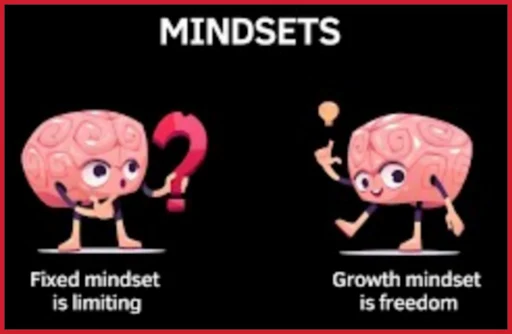How Mindset Changes the Meaning of Failure
Failure is inevitable in life. We all face challenges, setbacks, and disappointments that can make us feel discouraged, frustrated, or hopeless. But how we perceive and respond to failure can make a big difference in our personal and professional growth. In this article, we will explore how mindset affects the way we deal with failure and how we can cultivate a more positive and resilient attitude towards it.
What is Mindset?
Mindset is the set of beliefs and assumptions that we have about ourselves, our abilities, and our potential. It influences how we think, feel, and act in different situations. According to psychologist Carol Dweck, there are two main types of mindset: fixed and growth.
A fixed mindset is the belief that our traits and talents are fixed and cannot be changed or improved. People with a fixed mindset tend to avoid challenges, give up easily, ignore feedback, and feel threatened by the success of others. They believe that failure is a sign of lack of ability or intelligence and that they have no control over their outcomes.
A growth mindset is the belief that our traits and talents can be developed and enhanced through effort, learning, and practice. People with a growth mindset tend to embrace challenges, persist in the face of obstacles, seek feedback, and celebrate the success of others. They believe that failure is an opportunity to learn and grow and that they have the power to shape their destiny.
How Mindset Affects Failure
Our mindset determines how we interpret and react to failure. A fixed mindset sees failure as a personal flaw or a dead end. A growth mindset sees failure as a temporary setback or a detour. A fixed mindset feels ashamed or defensive when faced with failure. A growth mindset feels curious or motivated when faced with failure.
The way we view failure has a significant impact on our emotions, behaviors, and outcomes. A fixed mindset can lead to low self-esteem, anxiety, depression, procrastination, avoidance, or self-sabotage. A growth mindset can lead to high self-confidence, optimism, happiness, productivity, creativity, or innovation.
How to Develop a Growth Mindset
The good news is that mindset is not fixed. We can change our mindset by changing our thoughts and actions. Here are some tips on how to develop a growth mindset:
Recognize your fixed mindset triggers. Identify the situations or domains where you tend to have a fixed mindset. For example, you may have a fixed mindset about your math skills, your writing skills, or your social skills. Notice when you have negative thoughts or feelings about these areas.
Challenge your fixed mindset thoughts. When you catch yourself thinking in a fixed mindset way, question the validity and accuracy of your thoughts. For example, if you think “I’m not good at math”, ask yourself “Is this true? How do I know? What evidence do I have? What evidence do I not have?” Replace your fixed mindset thoughts with more realistic and constructive ones. For example, instead of thinking “I’m not good at math”, think “I can improve my math skills with practice and help”.
Adopt a growth mindset attitude. Adopt a positive and proactive attitude towards learning and improvement. Seek challenges that stretch your abilities and skills. View mistakes and failures as feedback and opportunities to learn. Celebrate your efforts and progress rather than your results or comparisons with others.
Practice a growth mindset behavior. Act in ways that reflect your growth mindset beliefs and values. Set specific and attainable goals for yourself and track your progress. Seek feedback from others and use it to improve your performance. Learn from others who have achieved what you want to achieve or who have overcome similar challenges as you.
Cultivate a growth mindset environment. Surround yourself with people who support your growth and development. Find mentors, coaches, teachers, friends, or peers who can offer you guidance, encouragement, feedback, or inspiration. Avoid people who undermine your confidence or discourage you from pursuing your goals.
Conclusion
Failure is not something to be feared or avoided. It is something to be embraced and learned from. By adopting a growth mindset, we can change the meaning of failure from a negative judgment to a positive opportunity. We can use failure as a catalyst for personal and professional growth.









